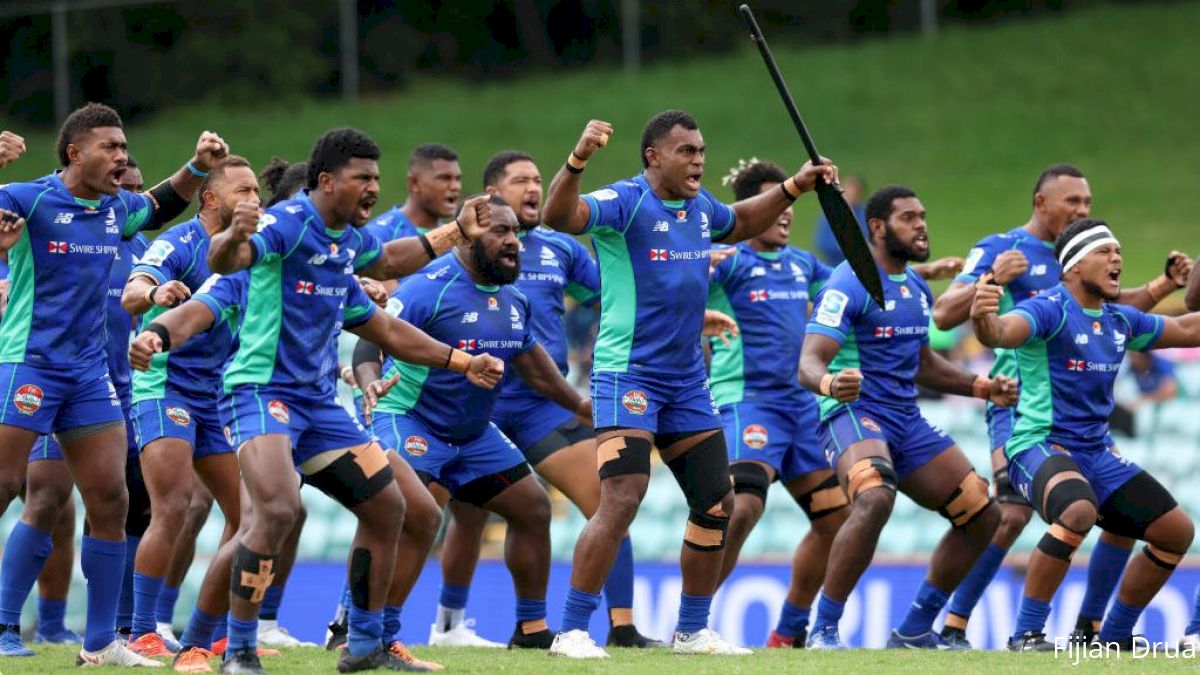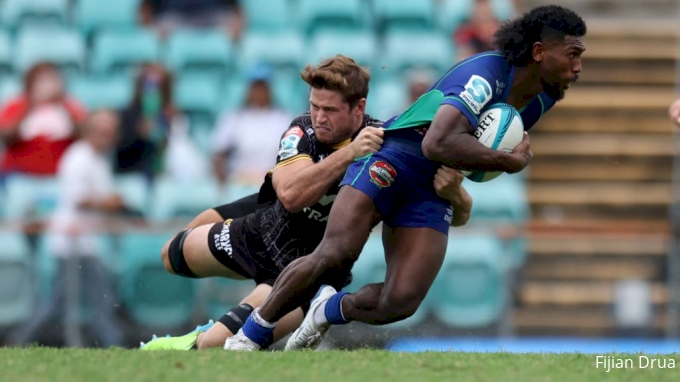Super Rugby: Fijian Drua Finally Gets Chance To Represent Islands
Super Rugby: Fijian Drua Finally Gets Chance To Represent Islands
Twenty-seven years after the sport turned professional in 1996, the small-but-mighty force of Fijian rugby gets its day in the sun.

Like it’s namesake, Fijian Drua—“drua” being a historic war canoe—had to drift across the rugby world to get to the point it is now.
Fijians take special pride in the country’s national sport, especially when a homegrown rugby team makes waves. Despite a total population of less than 1 million people, the national rugby union team has made eight of nine Rugby World Cups and appeared in the quarterfinals of the competition twice, in 1987 and 2007.
Still, for years, there wasn’t a club team on the world stage that Fijians could call their own. Even Drua’s current players admitted many of the teams they adored as kids weren’t Fijian.
“My team was Crusaders growing up in Fiji,” back-row Nemani Nagusa, Drua’s current and first-ever captain, said in preseason during a press conference.
“[Super Rugby] is something that has been [my goal] from then until now.”
Fijian children no longer have to look abroad for a favorite team to support. There’s a team to support now, and they’re taking part in a top-tier club competition right in their own backyard.
Drua is in its inaugural campaign in Super Rugby Pacific this season, joining fellow Pacific island representatives Moana Pasifika as competition debutants for the 2022 schedule. The rugby-mad South Pacific gets not one, but two teams playing for the region.
Twenty-seven years after the sport turned professional in 1996, the small-but-mighty force of Fijian rugby gets its day in the sun. It’s an opportunity and honor that Drua’s players—almost all of whom call Fiji home—are not taking for granted.
“We have a rugby-crazy nation back at home, and people love their rugby,” Nagusa said.
“For us to be here … they expect us to do well. There is pressure.
“I know there’s a responsibility for me [as captain], especially with a lot of young players. So for me, it’s just leading them and giving them confidence to go into the competition and don’t feel shy or hold back anything.”

Coach Mick Byrne, who had a 12-year playing career in Australian rules football before switching disciplines as a coach, took the offer to become Drua’s leader. It makes for his first head coaching position in rugby, after time spent as a skills coach for the likes of New Zealand, Australia and Scotland.
The 63-year-old said that his time of being a coach in the United Kingdom for clubs such as Leinster and Saracens first introduced him to Fijian players and what he called the “respect” that the people there have for the game. After all, the national team’s “Flying Fijians” nickname isn’t just for show; Fijian players are well-known for often playing a high-tempo and hard-to-anticipate style that frequently leads to exciting matches.
“What I really understood then was that even though they look like they play with abandon, they’re actually very, very professional about the game,” Byrne said in recalling his early days of coaching Fijian players.
“At the end of the day, there’s some great players that are passionate about the game, and it’s up to us as coaches to ensure that passion is married up with the professionalism we need to bring.”
Super Rugby is about as ruthless of a league as it gets in the sport, and Drua is feeling the might of the rest of the competition in full force thus far.
Drua currently sits 11th of 12 teams (ahead of only Moana Pasifika) with one win and six points through eight matches, with only its fellow Pacific island partner having worse marks in points scored and points allowed. With a match set up against the league leaders in Blues this weekend, who’ve won seven straight matches entering Round 10, it’s liable to not get much better immediately.
Still, the pride hasn’t wavered. And even after a 33-12 defeat to another title-hunter in Brumbies in Round 8, Byrne still had plenty of positives to talk about, especially regarding his squad’s attitude throughout the match.
Fijian Drua—who began their first match performing the pregame “Na Bole”—are representing their nation with immense pride, and though they have much to improve in Super Rugby play, they’re playing for something that goes beyond a name on a jersey.
“I think I’m just massively proud for their attitude to the game,” Byrne said following the Brumbies defeat.
“At all stages, they just keep playing. They keep trying to play the game. We’ve got errors in us, and when you play good sides like the Brumbies they’re going to capitalize on those. But then we get up and we go again. … We just keep going after it.”